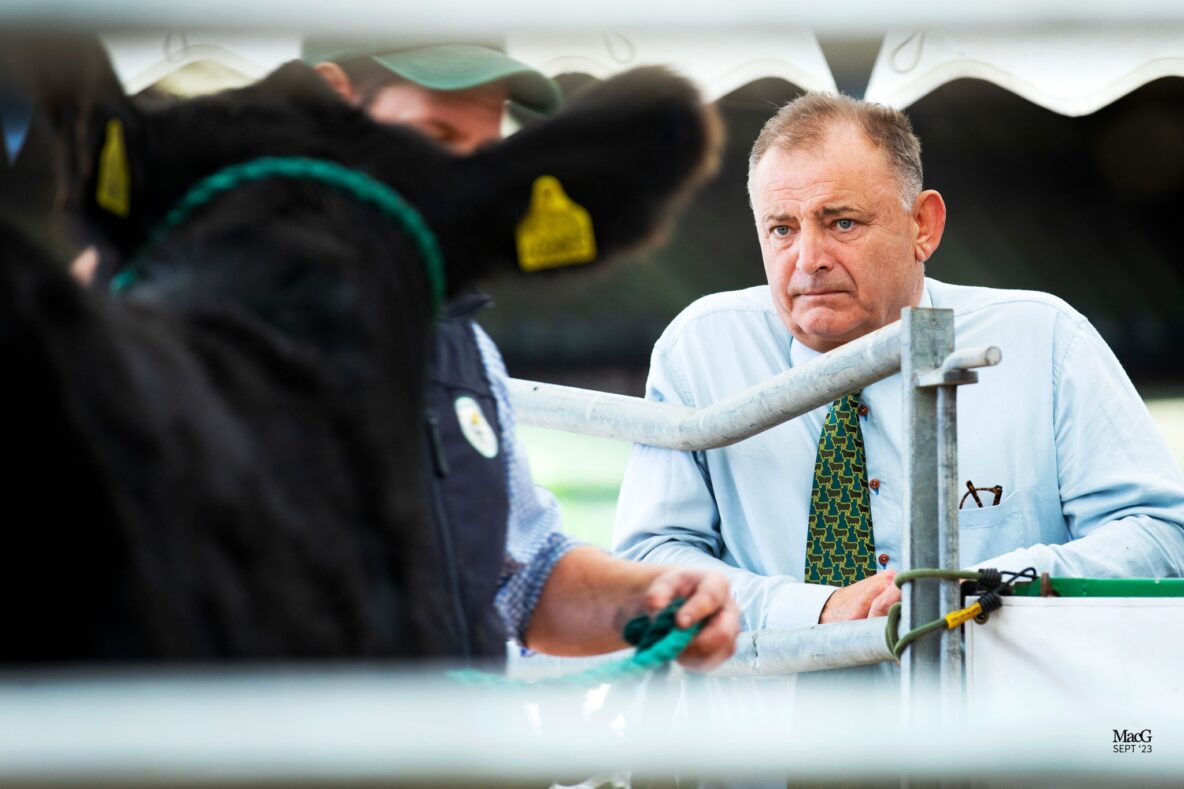Switch to native genetics could help stem cattle exodus
A leading cattle breeder has encouraged his peers to consider a switch in genetics before deciding to exit beef production altogether.
Angus Stovold, who runs the Rosemead herd of pedigree Aberdeen-Angus at Lydling Farm near Godalming in Surrey, made the plea after figures revealed beef cattle numbers in England are at a record low.
The figures from Defra’s annual June livestock survey show a 5.1% decline in breeding female numbers to 595,000 – representing a loss of 32,000 cattle in the year to June 1, 2024, and the lowest number since the survey began.
“Cattle numbers are continuing to fall in this country, with the decline in England mirrored elsewhere across the UK,” said Mr Stovold, who is a former president of the Aberdeen-Angus Cattle Society.
“However, I believe native genetics, such as Aberdeen-Angus, could help stabilise suckler herds and I’d encourage all producers to consider a switch to the breed before they reach the point of deciding to cease production.”
He said farmers needed to create low-cost, environmentally friendly beef production systems in response to tight margins, changes in agricultural policy, and growing pressure from consumers to produce meat in a more sustainable way.
“Aberdeen-Angus is a sustainable breed for everybody, be it a suckler breeder or a dairy farmer looking for a working bull,” added Mr Stovold.
“From an animal that’s born in Aberdeen, to one born on the cliffs of Cornwall, they’re so adaptable and resilient – and they can work for you wherever you are and with whatever system you have.”
He said Aberdeen-Angus cattle thrive on less inputs and can be outwintered – making them more sustainable in terms of both profits and environmental impact.
“They not only offer financial benefits by being low-input, they also attract a premium as Aberdeen-Angus beef is recognised and sought by consumers throughout the world,” added Mr Stovold.
Aberdeen-Angus Cattle Society chief executive officer, Robert Gilchrist, said many farmers were already making the switch to Aberdeen-Angus from other breeds as they look to become more sustainable.
He said: “As the farming landscape changes, we’re seeing increasing interest in Aberdeen-Angus genetics – both females and males – from commercial producers.
“This is being driven by the breed’s ability to deliver improved margins that are more resilient to external variables, such as input costs and environmental pressures, alongside their adaptability, meaning they can thrive in more nature-based systems.”



